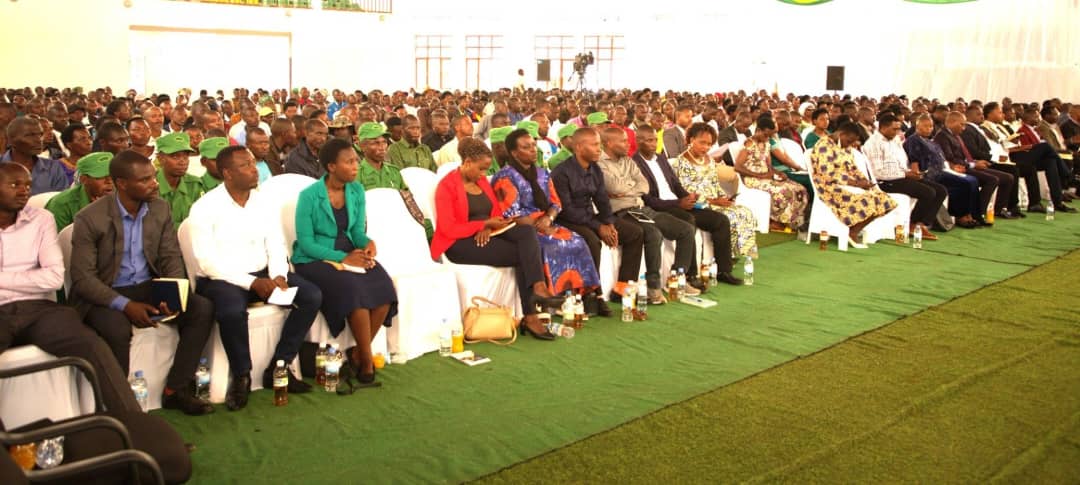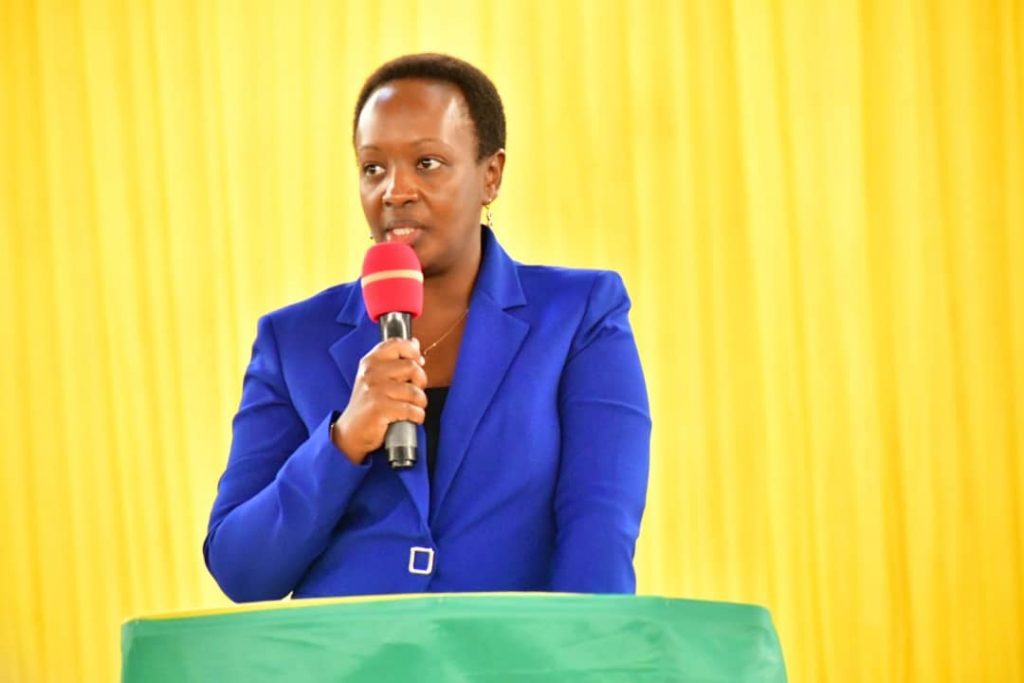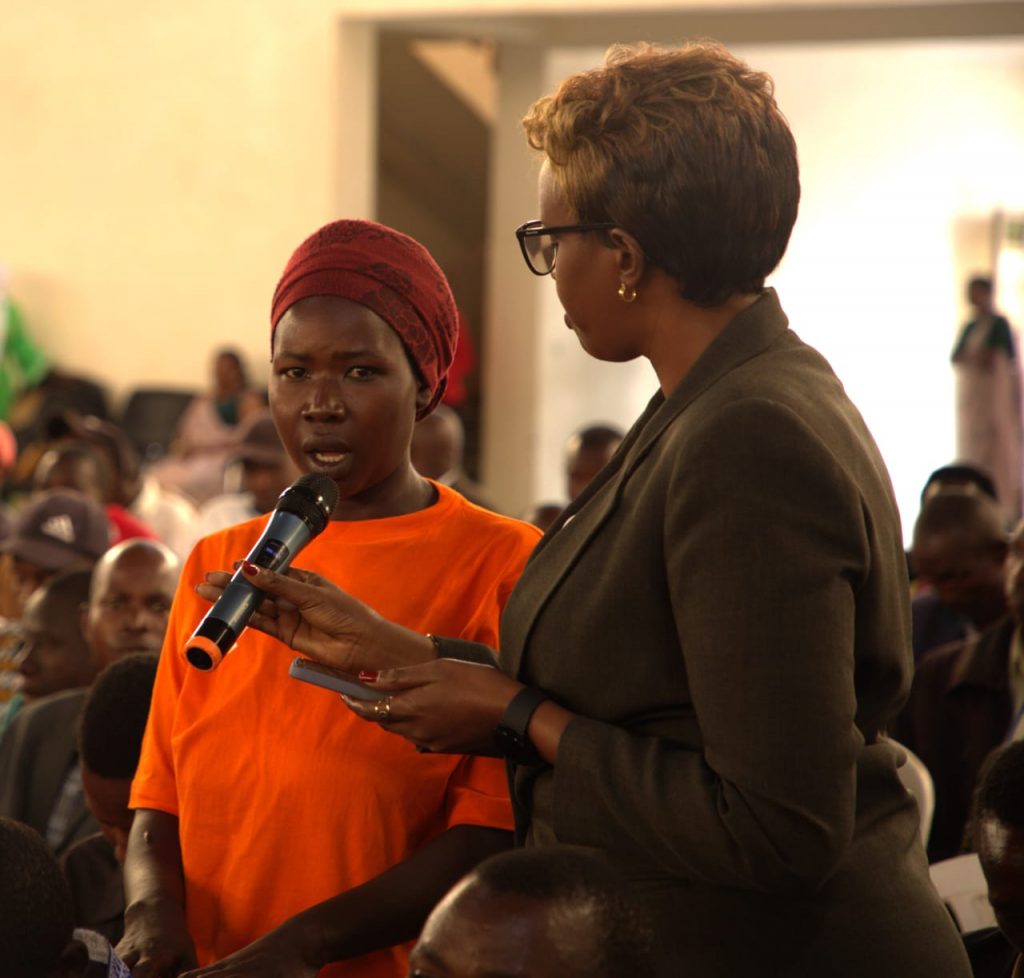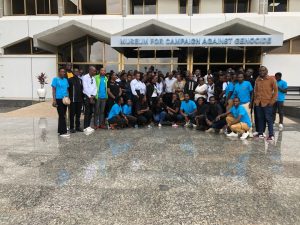Gisagara: Local Leaders Unite to Tackle Teenage Pregnancies and Gender-Based Violence
2 min read
A collaborative initiative by the Gender Monitoring Office and the South Province staged a meeting in Gisagara district focused on educating and empowering local leaders about “The Role of Local Leaders in Promoting Gender Accountability and Combating Gender-Based Violence.” The urgent focus of the gathering was the distressing prevalence of teenage pregnancies, with an overall of 116 reported cases recorded between July and November 2023 across multiple villages within the district.
Shedding light on the distressing statistics, specific Sectors like Mamba recorded 25 cases, Gishubi 17, Mugombwa 12, and several others noted significant numbers, underlining the pressing need for intervention to address the escalating issue of teenage pregnancies in the region.

The South province Governor Kayitesi Alice delved into the core issues influencing these troubling trends. Reflecting on people’s experiences, Governor Kayitesi highlighted the profound impact of upbringing, emphasizing the missed opportunities and challenges faced by adolescents, ultimately leading to teenage pregnancies. She stressed the crucial support rendered by the Gender Monitoring Office, marking this meeting as the 7th convened district initiative, aimed at curbing unwanted teenage pregnancies, eradicating gender-based violence, and addressing broader societal challenges such as school dropouts and family disintegration.

In an insightful interview, Chief gender monitor Umutoni Gatsinzi Nadine from the Gender Monitoring Office outlined measures implemented since 2019 to combat gender-based violence and promote gender equality. Umutoni acknowledged the pain of witnessing young girls still succumbing to pregnancies despite commendable efforts to track these incidents, which were previously challenging to monitor. She urged young girls to take responsibility for their well-being by actively participating in preventing pregnancies, emphasizing the critical role of local leaders in educating and supporting them regarding sexual reproductive health, rights, and how to report any attempts to exploit them.
Local leaders, like Havugiyaremye Jean Damascene from Gishubi Sector, shared successful local initiatives. He discussed their proactive approach of consistently disseminating messages about preventing teenage pregnancies during community meetings (Inteko z’abaturage), demonstrating tangible effectiveness in his area.
Mukangarambe Christine, a leader from Mareba Village in Kibilizi Sector, highlighted the challenges faced by young girls working as housemaids, attempting to escape family issues, often leading to pregnancies. She emphasized the necessity for comprehensive learning materials on sexual reproductive health, gender, and gender-based violence to educate and guide young people effectively.

Despite a reported reduction in teenage pregnancies according to the recent Rwanda Demographic Health Survey (RDHS) of 2020, the problem persists. The meeting in Gisagara underscored the ongoing challenges faced by the district, emphasizing the imperative need for sustained efforts in education, community engagement, and comprehensive support to combat teenage pregnancies and gender-based violence effectively.
The resounding message from the meeting was clear: a collective effort from local leaders, supported by comprehensive educational initiatives and robust community engagement, remains vital in addressing the multifaceted challenges of teenage pregnancies and gender-based violence in Gisagara and beyond.
Mukantwari Magnifique



